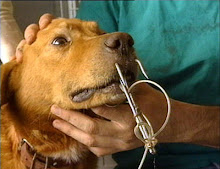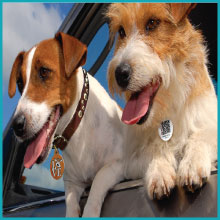The tiny Chihuahua causes more damage than any other dog breed, a new study by PayingTooMuch.com has revealed
Owning a dog is expensive - but now potential dog owners are able to see exactly which breeds cause the most damage, and which cause the least.
Despite being one of the smallest dogs, the Chihuahua causes an average of £866 worth of damage over its lifetime by ripping or staining carpets, scratching or chewing sofas and digging up plants and flowerbeds.
Second in the poll went to Dachshunds, with owners of the cute ‘sausage’ dog facing a bill of £810 to repair or clean up after their pet’s destruction followed by a Boxer’s total damage of £784.
At the other end of the scale, Staffordshire Bull Terriers cause the least amount of damage with a total bill of just £178.
It also emerged that, for some, the massive amount will be even higher with many also admitting their pet has caused damage to other people’s property and have been involved in, or caused an accident.
A spokesman for financial comparison sitePayingTooMuch.com, which commissioned the research, said: “Chihuahuas may be tiny but it seems they will leave you with a bigger bill than any other dog.
“They might not have the size of other breeds but they can still leave more than their fair share of destruction behind them.
“All pet owners expect a little damage from their dog from time to time, but when you add up the total amount spent on cleaning, repairing and replacing, it can be a huge amount.
“Add to that extra costs from damage caused to other people’s property and bills if your pet is involved in an accident, and you can expect to part with a large amount of money.
“Worryingly, there are a large number of people who don’t have insurance to cover the costs – whether that’s contents cover for your home or pet insurance to cover the cost of vets bills or damage to other people’s property.”
The study of 2,000 dog owners found that fourth place in the poll went to Dalmatian’s with a total damage bill of £775 over its lifetime, with a Bulldog’s £749 putting it into fifth place.
Great Danes will cost their owners £692, Huskies more than £671, Beagles £609 and Pointers £601.
German Shepherds completed the top ten with damage worth a total of £562.
And while Staffordshire Bull Terriers cause the least damage, they were followed close behind by West Highland Terriers which cause around £183 worth of destruction over their lives.
Third place went to Yorkshire Terriers with a bill of £227 followed by a Spaniel’s £230 and Whippet’s £251.
Other dogs to feature among the least destructive include Shih Tzus, Labradors and even the fearsome Rottweiler.
Researchers found that 57 per cent of dog owners will face a trail of destruction in their home at some point over their pet’s life, with scratched, ripped or chewed carpets the most likely damage.
Ruined sofas, damage to gardens and flowerbeds and scratched doors and door frames also add to the total.
But it doesn’t stop in the home as 13 per cent even admitted their pet has caused damage to someone else’s property, with seven in ten then facing an average repair bill of £285 for that as well.
More than one in five also admitted their pet has been involved in an accident, leaving them with a vet’s bill of a further £273.71.
It also emerged that one in five admit there have been occasions where they have regretted getting their pet, with one in ten even claiming they have considered giving their pet away or rehoming due to the constant damage to their home.
A spokesman for PayingTooMuch.com added: “When it comes to a pet, many owners turn a blind eye to the real costs involved because they are seen as being part of the family and are viewed with a loving eye. However as our research shows, the cost of owning a dog will usually exceed providing food, paying vets bills and buying toys as there will be other ancillary costs which should never be under-estimated for all sorts of reasons.”
I have to say in the nineteen years we have had our Chihuahua he hasn't cause really any damage and as for our Dachshund over the last fourteen years he has only scratched up the door waiting for us to walk in.
What can I say our dogs are great.
I have to say in the nineteen years we have had our Chihuahua he hasn't cause really any damage and as for our Dachshund over the last fourteen years he has only scratched up the door waiting for us to walk in.
What can I say our dogs are great.




